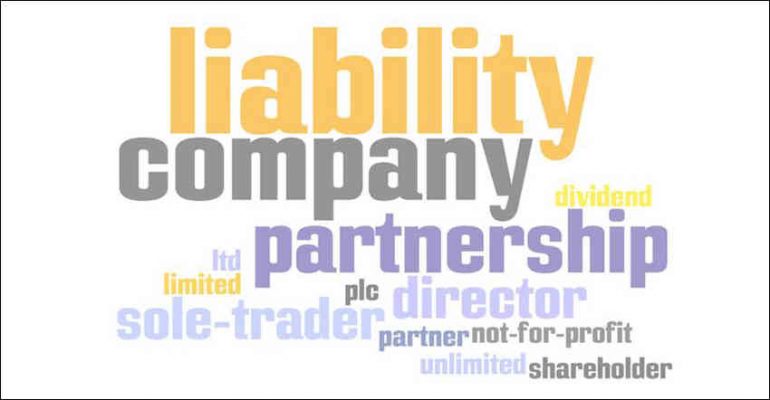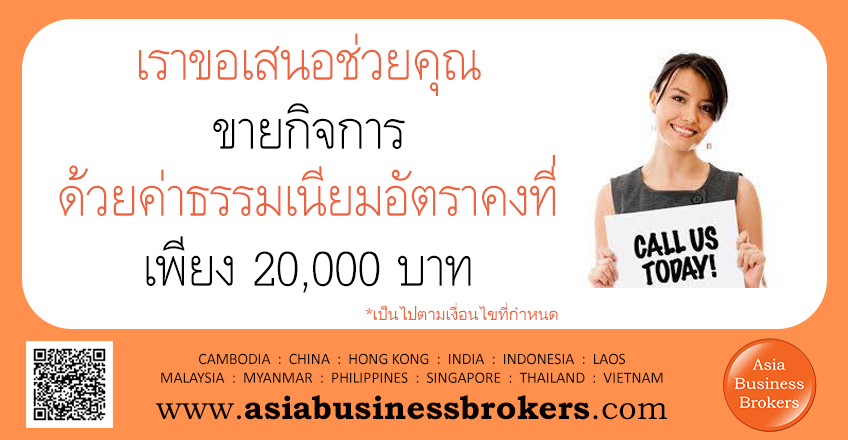
Common Business Structures in Thailand
At Asian Business Brokers, we receive numerous enquiries from those overseas wanting to know more about working, living and investing in a business in Thailand.
SB Law Asia is a specialist commercial law firm in central Bangkok.
This article has been prepared by Asian Business Brokers and SBLAW ASIA to answer those questions.
This is a guide to the issues. The final decision as to how best to proceed will depend on many circumstances, some of them personal to you. Please feel free to contact us for more specific advice.
Business Structures
- Sole Trader
Most businesses in Thailand are owned by Sole Traders. Sometimes, these are businesses which run with the assistance of immediate and extended family, or a loosely defined number of partners. Income from them is taxable and it id the obligation of the Sole Trader to file a personal income tax return. Most do not. The tax base in Thailand is 11% of the population.
Although informal, there are some registration formalities. A Sole Trader must obtain a Business Registration Certificate from their local District Office and display it at their place of business. It is a personal document and so the Sole Trader can transfer it to wherever he chooses to trade next. The name on the certificate should be used in any formal documentation, such as leases or rentals.
As the majority of these businesses are outside of the tax net, they do not register for VAT, which is therefore irrecoverable, if paid. Neither their owners nor their staff are included in any government health schemes, other than the Universal Health Scheme (known as the 30 Baht Scheme).
Foreigners may not register as Sole Traders. They may not work in one as Work Permits are not available to them.
- Partnership
There are 2 types of partnership in Thai law. Ordinary partnership and Limited Partnership. Both are governed by laws similar to those in your home countries. A Limited Partnership can apply for a Work Permit for its foreign staff. Local Labour offices and local immigration offices often suggest otherwise but are usually amenable to persuasion as the law does allow such partnerships to employ foreigners. Indeed, foreigners may be partners.
Limited Partnerships must be registered and are sometimes known as Registered Partnerships. One partner must have unlimited liability and he is the Managing Partner, which carries further obligations. Foreigners should not invest the majority of the capital for this reason. Please contact us for more specific information.
An Ordinary Partnership is subject to the same rules as to registration as Sole Traders, except there are two owners who share equally in the profit or loss of their business venture. Both partners should be holders of Business Registration Certificates and both certificates should be on display in the business premises. For the purposes of declaring income for taxation purposes, total business profit or loss is simply divided by 2 and each partner declares that amount.
- Thai Limited Liability Company
This is the most common form of foreign business ownership in Thailand and is by far and away the most convenient for those wishing to fully protect themselves and obtain a Work Permit.
Here is a list of the benefits:- To contribute to the Social Security system for their employees, without which, it may be difficult to attract them
- To contribute to the VAT system to pay VAT and to claim input credits,
- A company provides the easiest route to a Work Permit
- Limited liability protection that a company provides them
- It provides a method of clearly defining, registering and legitimizing ownership of a business,
- Many suppliers and customers will only trade with a registered company,
- Some business and regulatory businesses require a license that can only be granted to a company, and
- For many other reasons.
Notes:
Every Thai company is required to have at least 3 shareholders. Foreign ownership is limited to 49%. A foreigner may be both a shareholder and a directorDifferent considerations apply for a company being used as a vehicle for the acquisition of Real Property
It is possible to circumvent the proscribed shareholding rules by the use of preference shares
Work Permits are applied for by the company for each foreign employee. There is a minimum capital requirement of THB 2 million for one Work Permit and an extra THB 2 million for each further Work Permit.
The capital is nominal capital and does not have to be paid in cash. Only the duty on the amount of nominal capital need be paid. The minimum capital will attract duty of THB 12,000.
The Foreign Business Act and the Alien Business Act and a whole host of laws and regulations may apply. Please contact us for more specific advice.
Appointment as a director does not itself require a Work Permit. It is considered an Office and not a job
Thai companies are required to submit their accounts for audit annually as at 31 December each year and must be filed by 31 May of the following year. It is necessary to submit a number of documents and returns, and make the necessary payments (generally) monthly. Typically, this includes VAT, Social Security, Withholding Tax, Payroll Tax and Specific Business Tax. Annual reporting and payments include such taxes as Property Tax, Signage Tax and Social Security Adjustment. Please contact us for more advice and the provision of these services.
Becoming a director of a Thai company may affect your tax position. Please seek taxation advice from your home accountant prior to consulting this firm or other professionals here.
- To contribute to the Social Security system for their employees, without which, it may be difficult to attract them
- Amity Company
Companies established under this treaty may be wholly owned by nationals of the United States. In all other respects, the rules and laws quoted above apply.
Note:
There is a government additional fee of THB 20,000 for an Amity company
Additional Information
Please also read Foreigners Working and Living in Thailand for assistance with VISAs and work permits.
The information provided in the article is generic in nature. In all cases, people wishing to do business in Thailand are advised to contact us.
 p;
p;
21st June 2017





